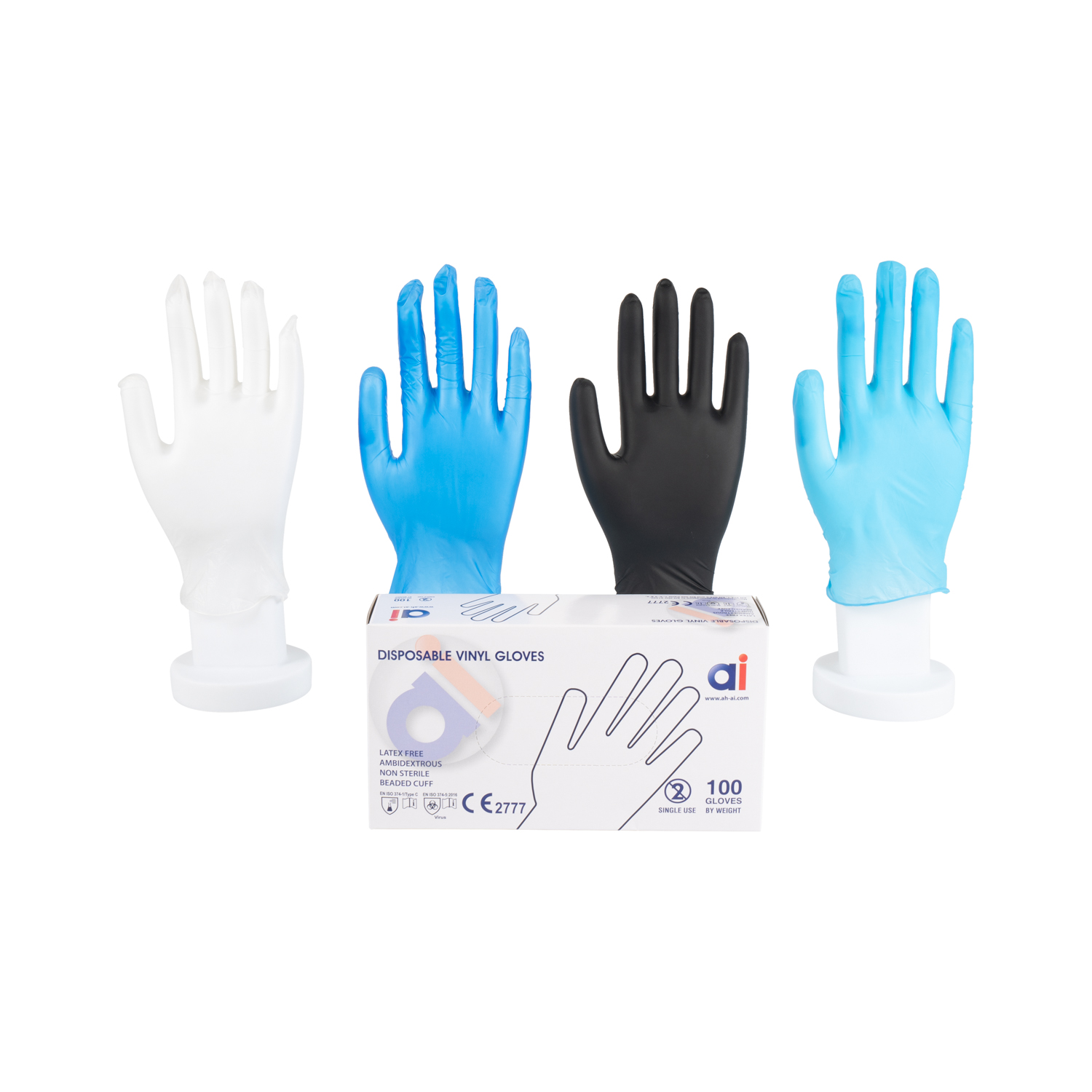
Disposable Hypoallergenic gloves are one of the most common pieces of PPE in workplaces today, whether it be an industrial facility where they’re used for manufacturing, or an office building where they’re used by the cleaning staff. With so many common allergies and sensitivities we often get asked – is there is such a thing as a hypoallergenic glove? While the answer is technically no, there is no glove that can guarantee that a person won’t have an allergic reaction, there are some hypoallergenic gloves that are less likely to cause a reaction than others.
If you suspect that you have a disposable glove allergy, it’s always best to consult with a healthcare professional for diagnosis and treatment. Outside of medical treatment avoiding exposure to the allergen is the best way to prevent allergic reactions. It is also important to inform your healthcare provider about your allergy to avoid potential exposure during medical procedures.
But what’s the solution for day to day glove use? In most cases there will be a disposable glove option that will work for your allergy. There’s also the option to use re-usable hypoallergenic glove of various other materials. This is dependent on what type of work you’re doing – reusable gloves are not an option in many industries due to the risk of cross contamination.
Glove Allergies
Allergies to gloves are due to a variety of factors. This includes the materials used in the gloves, anything that comes into contact with the gloves during the manufacturing process, and individual sensitivities. There are three key allergies when it comes to disposable gloves: latex, powder and accelerators. Let’s dig into what each of those are.
Latex proteins
Latex gloves are the most common culprit for allergic reactions because the proteins in natural rubber latex are a common allergy trigger. In fact, according to the AAFA (Asthma and Allergy Foundation of America) about 4.3% of the general population is allergic to latex. Symptoms of latex allergy can range from mild to severe and include skin irritation, hives, itching, redness, and swelling.
Powder
Another common allergy with disposable gloves is the powder that’s found inside them. In most cases the powder is sterilized corn starch, but it can vary from manufacturer to manufacturer. The powder is used during the manufacturing process so all powder-free gloves have been cleaned to remove this powder – this is why you’ll often find that the powder-free versions are more expensive, since they take longer to make. Luckily powder-free versions of gloves are widely available so this is an easier allergy to avoid – just select a powder-free version of the latex, nitrile or vinyl glove of your choice.
Accelerators
Accelerators can be another issue that causes skin sensitivities and allergic reactions. Accelerators are a type of chemical that is used in the manufacturing process to speed up the process. There are Nitrile gloves options that are accelerator-free but you need to check the product details because many gloves do contain accelerators.
Nitrile Gloves as a solution
Nitrile hypoallergenic glove are made from a synthetic material that is free from latex and other common allergens, making them a good choice for individuals with sensitive skin or latex allergies. Nitrile gloves are also very stretchy and resistant to punctures, making them a popular choice for medical professionals and industrial workers who need a latex alternative. Nitrile gloves are especially popular in the healthcare industry as an alternative to latex gloves.
Vinyl gloves as a solution
Vinyl gloves are another alternative to latex gloves. They’re known as the more affordable and economical option, but tend to be less popular because they don’t have the same stretchy quality as latex and nitrile. Vinyl gloves are made from polyvinyl chloride (PVC) and are since they do not stretch they are generally less durable than other types of gloves since they are prone to rips. While this makes them not a great choice for high-risk situations for things like cleaning and food service they are often more than durable enough to get the task done. While vinyl gloves are much less likely to cause allergic reactions than latex gloves, they are still made from a synthetic material that can cause allergic reactions in some.
Our allergy-friendly recommendation
But what is the top glove we recommend to people with allergies and skin-sensitivities you ask? It would be none other than our Grape Grip Powder Free Nitrile Exam Glove. This glove is an all-arounder and can be used in most situations – even for medical use including chemotherapy. They are 100% latex free, powder-free and accelerator-free. This makes them the best option we have for those struggling with allergic reactions and skin-sensitivities.
So, while there is no such thing as a completely hypoallergenic glove, there are gloves that are less likely to cause allergic reactions than others. Nitrile gloves are a popular choice for individuals with latex allergies, while vinyl gloves are another more economical alternative for latex. Reusable gloves made from natural materials like bamboo or cotton may be hypoallergenic, but may not be suitable for all types of work. Ultimately, the best way to prevent allergic reactions to gloves is to be aware of the materials used in the gloves and to choose gloves that are suitable for the specific task at hand.




